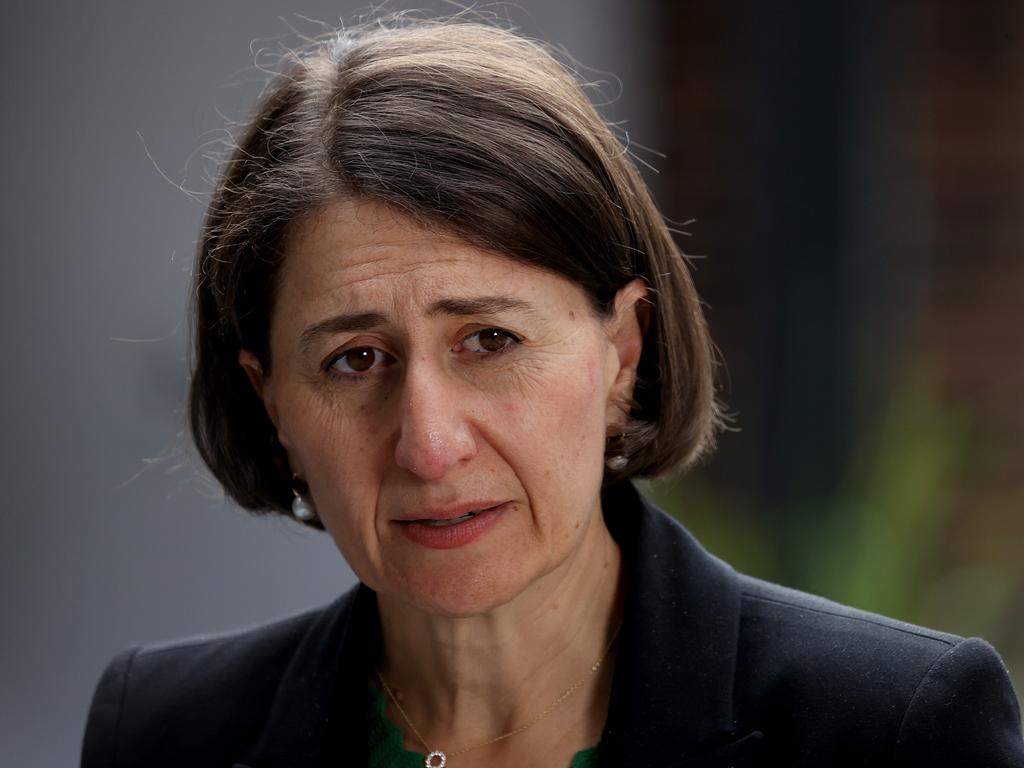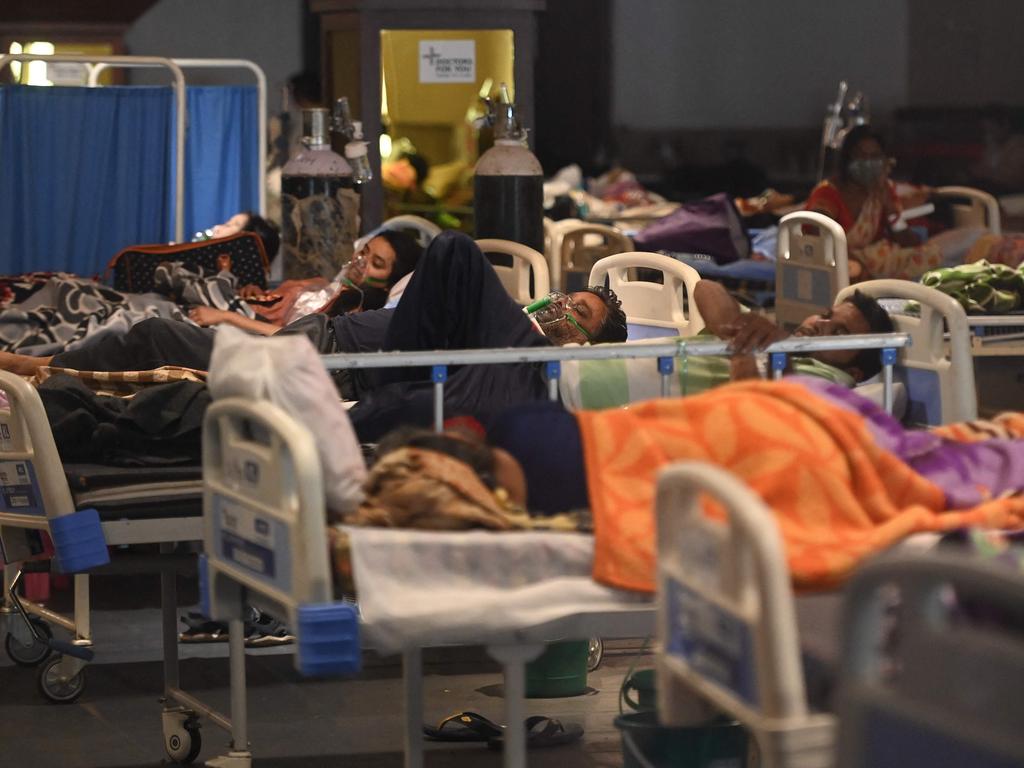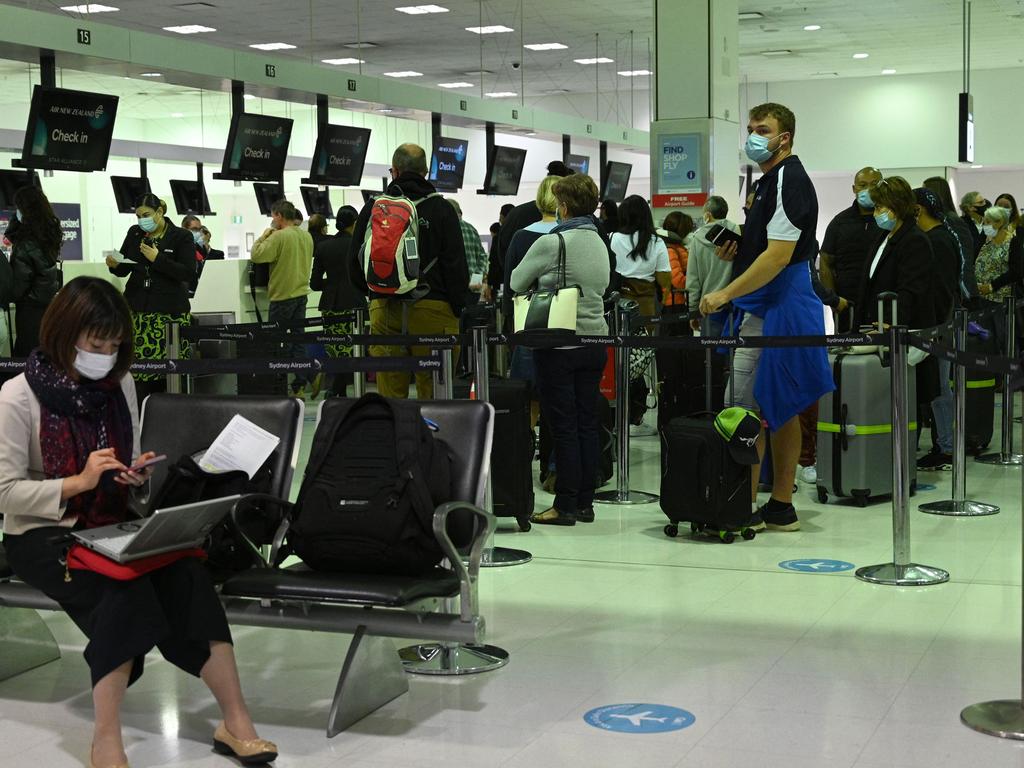Premier hints at ‘double digit’ COVID-19 surge in hotel quarantine
NSW residents have been told to prepare for another spike in hotel quarantine infections, as the alarming trend continues across multiple states.
The alarming rise in hotel quarantine infections across multiple Australian states is expected to worsen, with NSW Premier Gladys Berejiklian warning of a “double digit” spike.
NSW, Queensland, South Australia, Western Australia and the Northern Territory have all experienced a surge in returned travellers testing positive to COVID-19 in recent days, with many cases linked to people coming back from coronavirus ravaged India.
So far today there have been 24 COVID-19 cases in hotel quarantine across Australia. However, not all states have released their daily figures so that number could grow.
On Wednesday, NSW recorded nine new hotel quarantine infections, with Ms Berejiklian warning tomorrow’s figures are expected to exceed this number.
“I was just advised that overnight we have already had double digit new cases in our hotel quarantine system, which we will report on tomorrow,” she said during Wednesday’s press conference.
“The increasing incidents of disease in some parts of the world is very substantial, it is impacting us in our quarantine system.”
RELATED: ‘Half a billion cases’: Fears of virus cover-up

Authorities are still working to determine the source of origin for the new hotel quarantine cases but chief health officer Dr Kerry Chant confirmed there has been a rise in infections coming from India.
“As you would expect we are seeing a higher rate of positivity in returning travellers from India,” she said.
It follows multiple days of high quarantine infections rates, with NSW recording 49 new quarantine cases since Friday.
Queensland, which had previously been recording low levels of daily infections in returned travellers, experienced a sharp rise with nine hotel cases confirmed overnight.
South Australia has also seen an increase in hotel quarantine infections, recording 14 new cases on Monday, up from the nine recorded on Friday.
RELATED: Rich Indians flee crisis on private jets

RELATED: India’s COVID crisis threatens ‘whole world’
Likewise, the Northern Territory has been battling a wave of international cases, recording four new infections on Monday, 10 on Saturday and 13 on Friday.
Of those quarantine cases, 24 had arrived on flights from India.
In the past two days, Western Australia has recorded eight new hotel quarantine cases, the majority of which have been linked to returned travellers from India.
Western Australian Premier Mark McGowan claimed more than half of Australia’s active COVID-19 cases were now from people who had returned from India.
“These days the rate is now over half of our cases are out of India,” Mr McGowan told reporters on Wednesday, labelling the situation “terribly tragic”.
Questions over who is allowed to leave and re-enter Australia
It follows revelations that Perth’s recent three-day lockdown was sparked by a man who was allowed to travel to India for his wedding before returning to Australia.
In response to the growing COVID-19 crisis in India, Prime Minister Scott Morrison has suspended flights to and from the country until May 15.
Epidemiologist Professor at the University of Sydney, Alexandra Martiniuk, told news.com.au that cases of people being allowed to leave the country for seemingly non-essential reasons have sparked a discussion about what should and shouldn’t be allowed.
“Australian citizens have voiced that the decision-making regarding who is allowed to travel overseas and then return, is opaque and this could be made more clear,” she said.
“For instance there is concern about this travel is for weddings, athletes, movie stars, etc. Then these ‘travellers’ return (with) an increasing number carrying COVID.”
RELATED: Stupid reasons people are allowed into Oz

Professor Martiniuk said it appears the public is in agreeance that travel for compassionate reasons should be allowed, such as to assist a family member dying overseas or to attend a funeral, but there is concern about how broad the reasons for leaving the country have become.
With multiple states seeing transmission events in hotel quarantine settings in recent weeks, this spike of infected travellers also serves to heighten fears the virus could leak back into the community.
Is our current hotel quarantine system the best option?
Professor Martiniuk said the government needs to consider if its current hotel quarantine system is the best option for Australians.
“The variants (overseas) are more transmissible, and we need to consider if the hotels are best equipped to deal with airborne spread,” she said.
“We do need to consider if quarantine in hotel facilities in major cities is the best approach. Having this approach justified for the public would be useful.”
Many health professionals have been urging the government to further consider the seriousness that airborne transmission can pose, particularly in hotel quarantine settings.
UNSW’s head of biosecurity research, Professor Raina MacIntyre, told news.com.au that more needs to be done to stop ongoing leakages from hotels, adding there is more at stake now more mutant strains of the virus are emerging.
“The next issue is addressing airborne transmission – sadly, this is denied by the national committee, ICEG, which advises AHPPC,” she said.
“As long as we deny airborne transmission, we cannot stop continual breaches in hotel quarantine. We need to address ventilation, use portable air cleaners, provide hotel quarantine staff with N95 respirators, and select quarantine venues based on the adequacy of ventilation.”
The increase in hotel quarantine cases across Australia reflects the “global situation” with respect to COVID-19, Professor Martiniuk said, pointing out it is a grim reminder of why our international borders have remained closed for so long
“Sadly it has reminded us in Australia that the reopening of borders may not come as soon as hoped,” she said.
“Watching the world grapple with COVID however, has given further support to the approaches being taken by Australia which have protected our residents’ health and our economy.”




